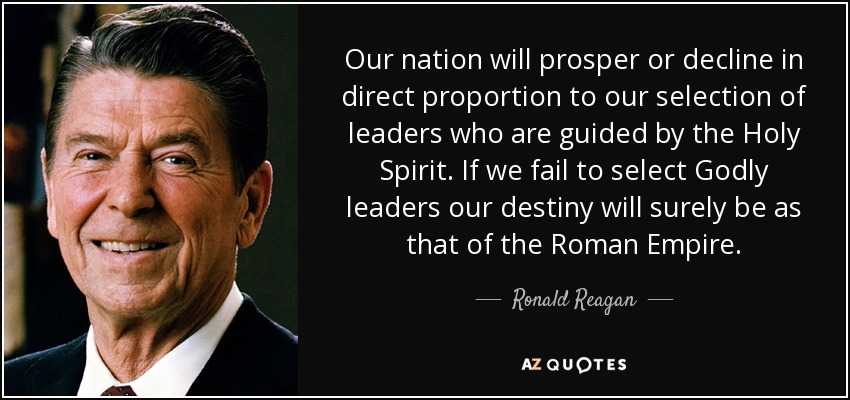Nations rise – and nations fall.
That was the conclusion of Malcolm Muggeridge, the late British journalist, writing in his book, The End of Christendom:
I conclude that civilizations, like every other human creation, wax and wane. By the nature of the case there can never be a lasting civilization anymore than there can be a lasting spring or lasting happiness in an individual life or a lasting stability in a society. It’s in the nature of man and of all that he constructs to perish, and it must ever be so. The world is full of the debris of past civilizations and others are known to have existed which have not left any debris behind them but have just disappeared.
He continued:
Whatever their ideology may be, from the Garden of Eden onwards such dreams of lasting felicity have cropped up and no doubt always will. But the realization is impossible for the simple reason that a fallen creature like man though capable of conceiving perfection and aspiring after it, is in himself and in his works forever imperfect. Thus, he is fated to exist in the no man’s land between the perfection he can conceive and the imperfection that characterizes his own nature and everything he does.
A late-in-life convert to Christianity, Muggeridge, who died in 1990 at the age of 87, was not shy to share his faith – and did so with great fervor.
Ronald Reagan shared Muggeridge’s convictions, and often used his bully pulpit of the presidency and other forums to make similar observations, though often with a more optimistic bent.
“Our nation will prosper or decline in direct proportion to our selection of leaders who are guided by the Holy Spirit,” Reagan once warned. “If we fail to select Godly leaders our destiny will surely be as that of the Roman Empire.”
In other words, we’ll often get what we deserve, which explains a lot of what we’re facing today.
Muggeridge and Reagan’s views don’t contradict, but many of us appreciated the sunnier perspective of the Gipper. He believed the end is not yet – but beware.
We might think of these challenges especially this coming Sunday as many Christians around the world celebrate Pentecost.
In the hierarchy of Christian holy days, Christmas and Easter stand alone. One follows the other, of course. Without the birth of Jesus of Nazareth, there would be no need or reason for His resurrection from the dead 33 years later – a singular, monumental and transformative event upon which every Christian’s faith rests.
But Pentecost is a third day on the Christian calendar that is woefully understated and under-recognized. It’s an ancient festival commemorating the day when followers of Jesus believe the Holy Spirit descended from the heavens and rested upon His once scared and frightened apostles.
In Christian teaching, God is three persons in one – God the Father, God the Son and God the Holy Spirit. Some theologians even divide history into three corresponding eras based on this triune belief. Prior to Jesus’ three-year ministry, we lived in the era of God the Father. Then there was the brief but substantial era of Jesus. Ever since His ascension, we’ve been living in the era of the Spirit.
Pentecost is celebrated in many churches, marked in some by the wearing of red and the reading and singing of relevant Scriptures and hymns. But I’ve long thought it should be way more of a big deal, because the arrival of the Holy Spirit changed everything, most especially the trajectory of the early Christian Church.
When the apostle Paul wrote a letter to his friends in Galatia, an area in modern-day Turkey, he reminded them that the “fruit” of the Holy Spirit is love, joy, peace, patience, kindness, goodness, faithfulness, gentleness and self-control.
Rarely have the people of the world needed the “fruit” of the Spirit more than today.
There’s an old saying that something too good to be true usually is – but not in this case, nor ever in God’s economy. The power of the Holy Spirit is capable of infusing and transforming all of us from the inside out.
“It is futile for us to try and serve God without the power of the Holy Spirit,” wrote the late Christian teacher Warren Wiersbe. “Talent, training, and experience cannot take the place of the power of the Spirit.”
We thank the Lord for His generous gift of the Holy Spirit, especially this coming Pentecost Sunday.






